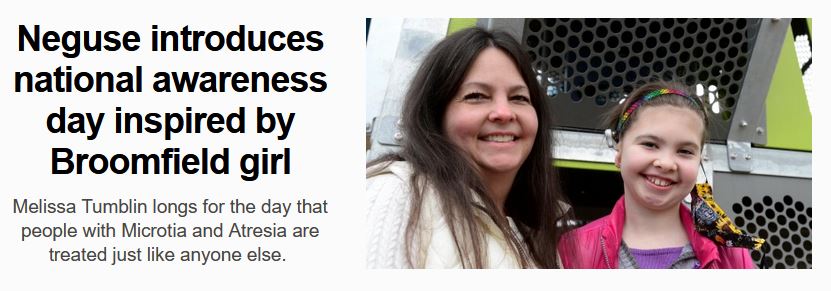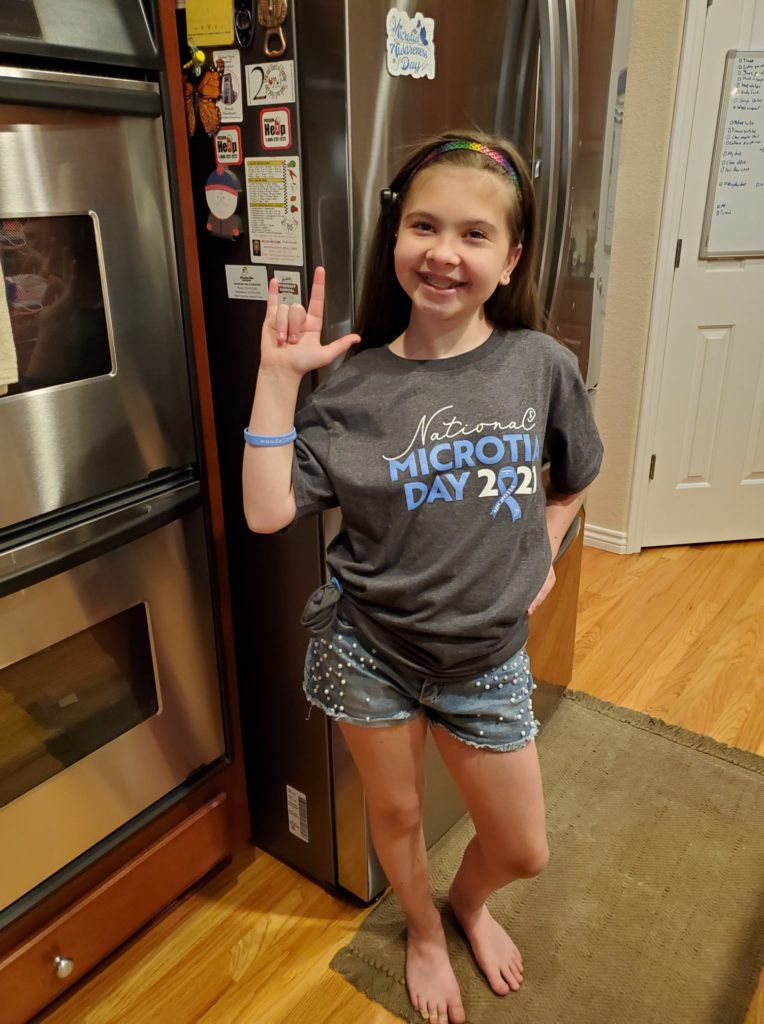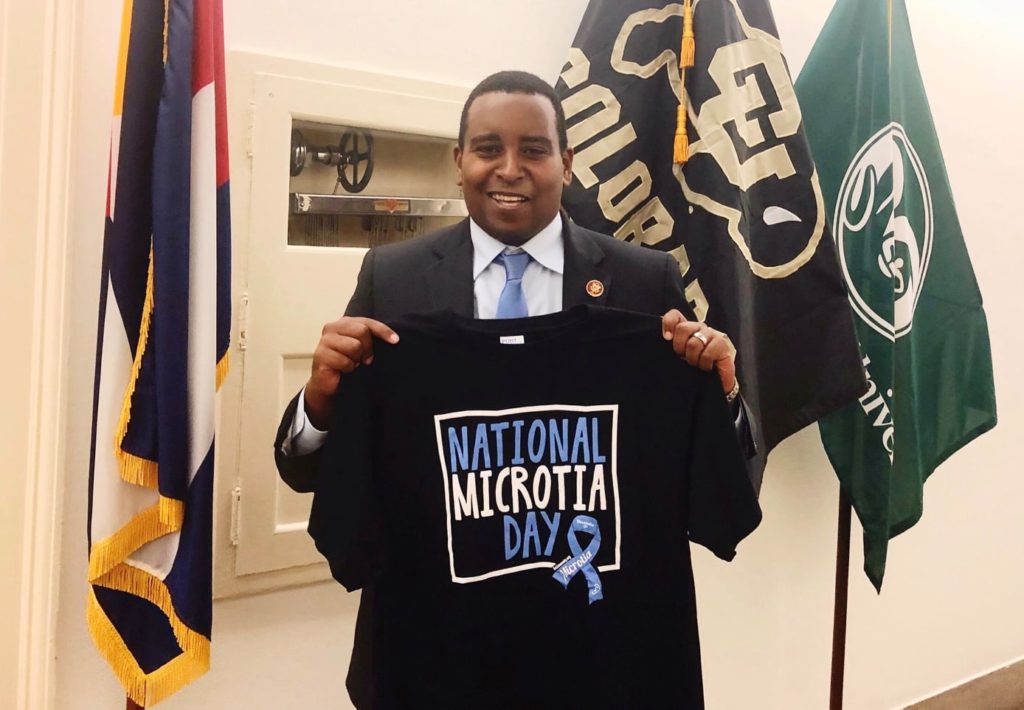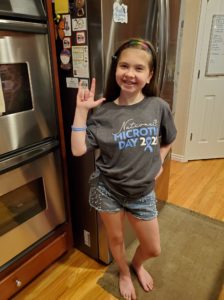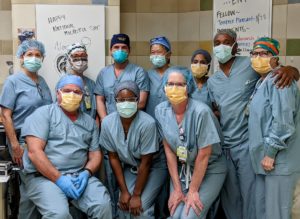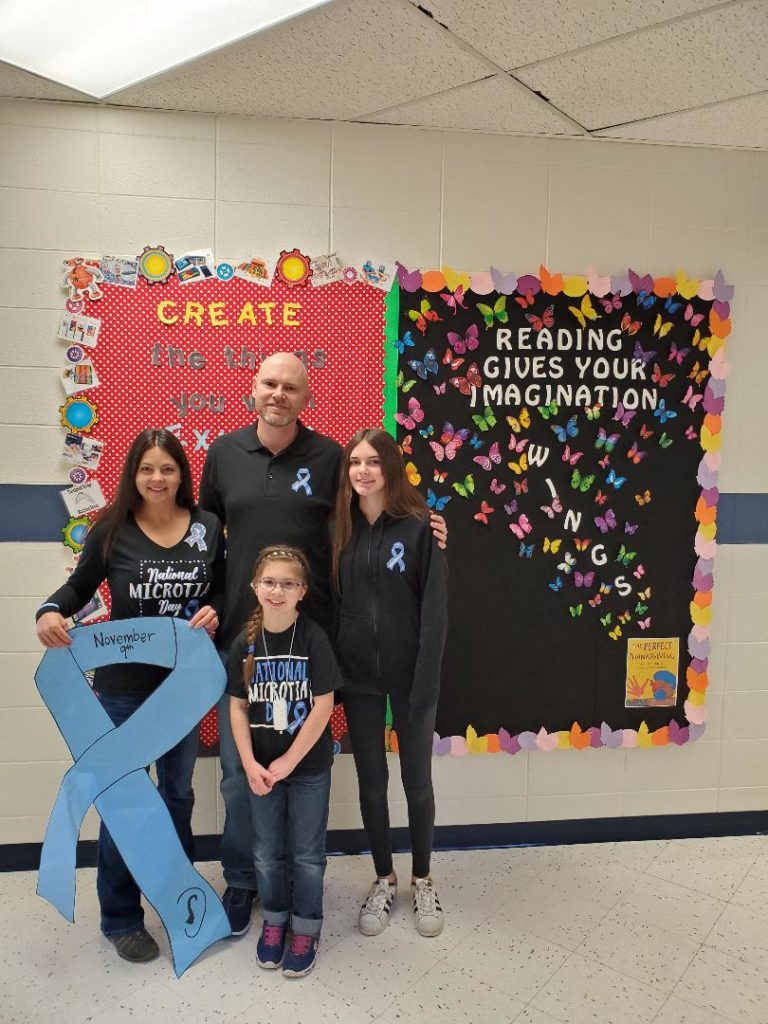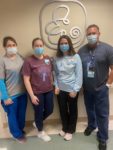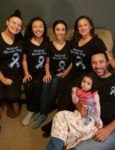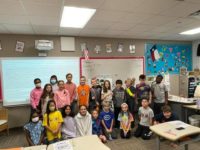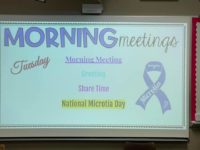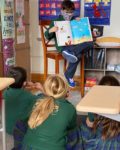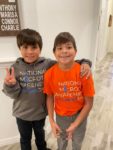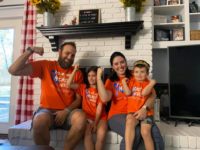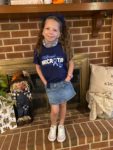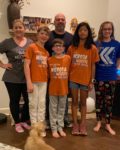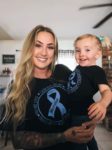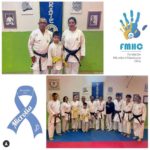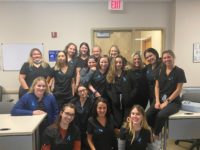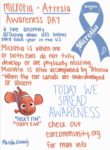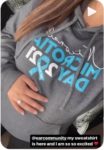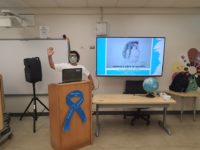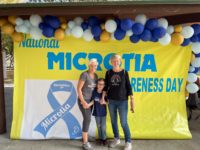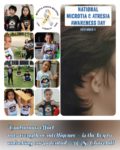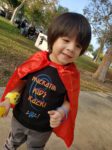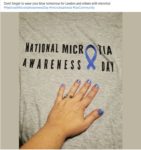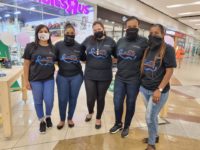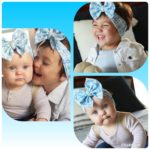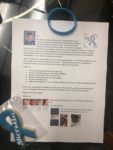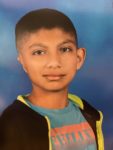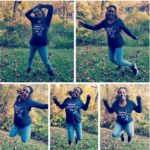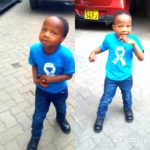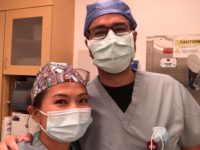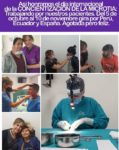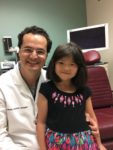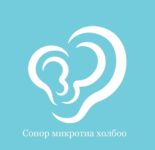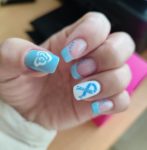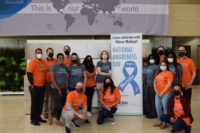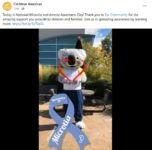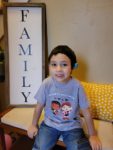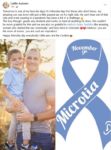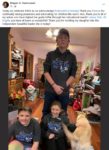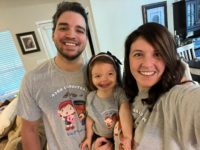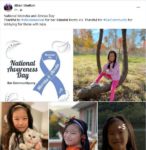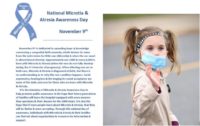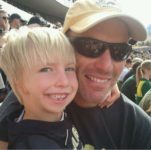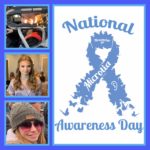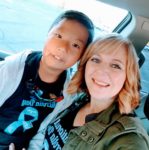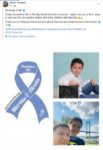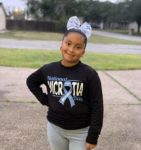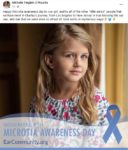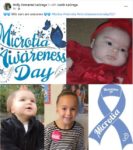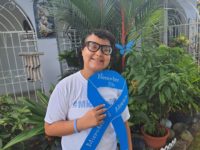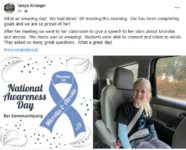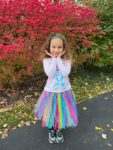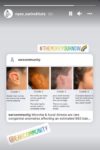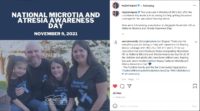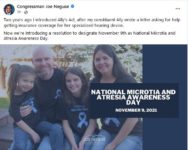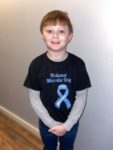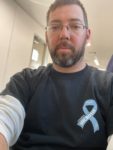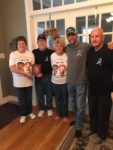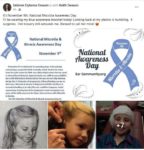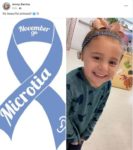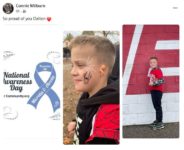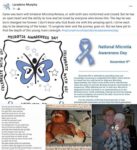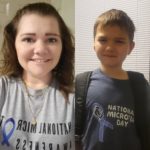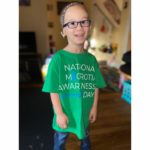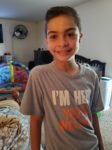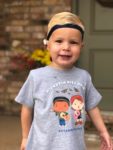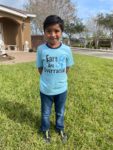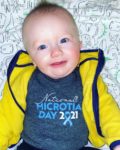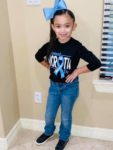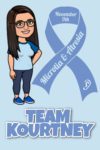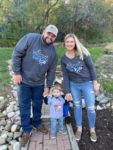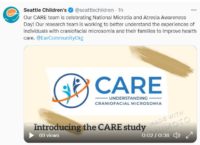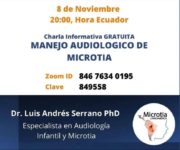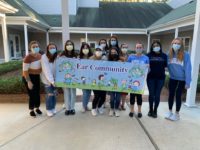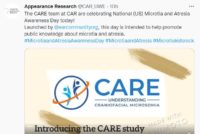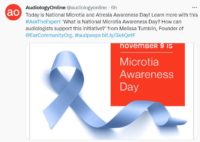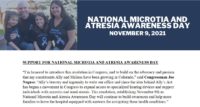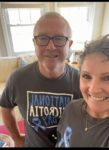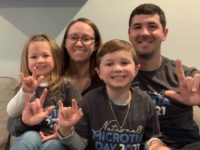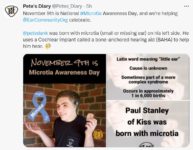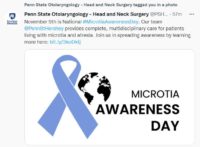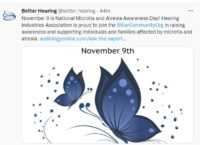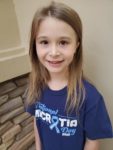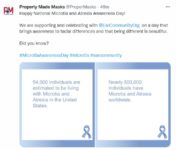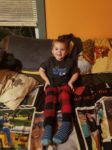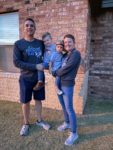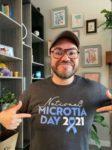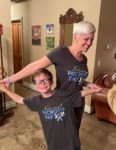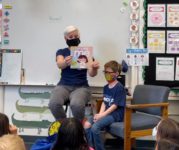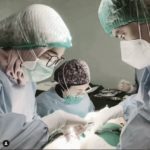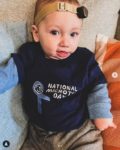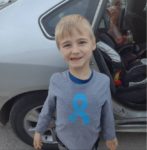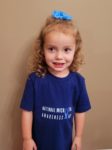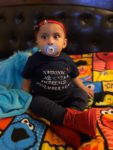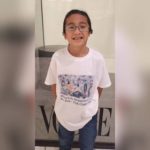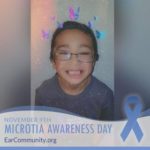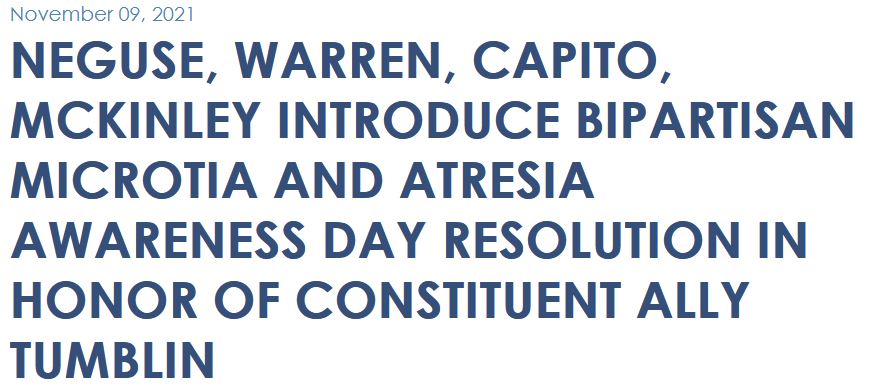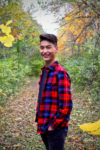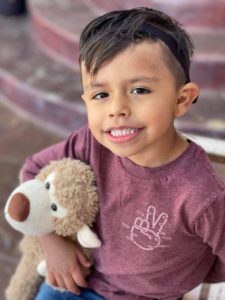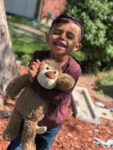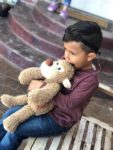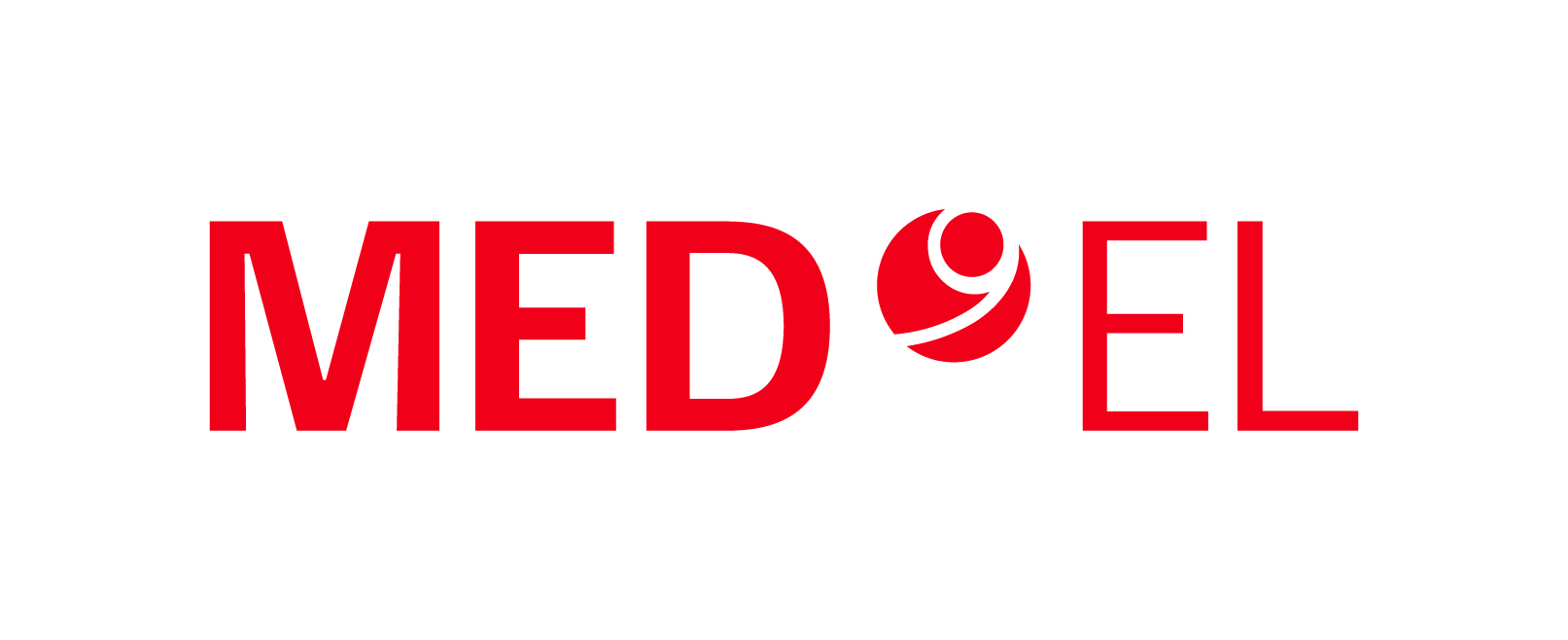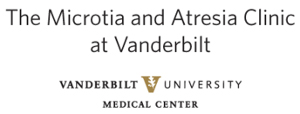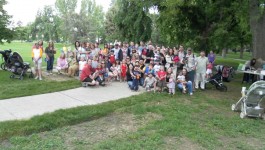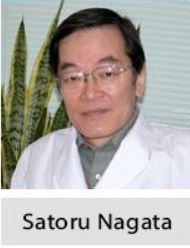 Yesterday, January 6th, 2022, our community said goodbye to a legendary surgeon who specialized in Microtia repair, Dr Satoru Nagata. Dr. Nagata revolutionized microtia ear reconstruction through his own individual technique known as the “Nagata Technique”. His technique helped shorten the number of stages of surgery needed for rib graft surgery among many other improvements still used today. Our thoughts and prayers are with his family, friends and colleagues who were given the chance to walk with Dr. Nagata in life along with the unique opportunity to learn how to make beautiful ears for those who needed them.
Yesterday, January 6th, 2022, our community said goodbye to a legendary surgeon who specialized in Microtia repair, Dr Satoru Nagata. Dr. Nagata revolutionized microtia ear reconstruction through his own individual technique known as the “Nagata Technique”. His technique helped shorten the number of stages of surgery needed for rib graft surgery among many other improvements still used today. Our thoughts and prayers are with his family, friends and colleagues who were given the chance to walk with Dr. Nagata in life along with the unique opportunity to learn how to make beautiful ears for those who needed them.
The microtia community mourns the loss of legendary surgeon Dr. Satoru Nagata
Neguse introduces national awareness day inspired by Broomfield girl
Saturday, November 20th, 2021
By Brooklyn Dance | bdance@prairiemountainmedia.com |
Melissa Tumblin longs for the day that people with microtia and atresia are treated just like anyone else.
Melissa’s daughter Ally was born without a right ear and uses a bone-anchored hearing aid to hear. For more than a decade, Melissa has dedicated her life to advocating for the hearing community. After Ally wrote a letter to Rep. Joe Neguse, D-Lafayette, talking about her hearing device and how it’s not covered by insurance, Neguse introduced legislation titled “Ally’s Act” in Congress, which would ensure private insurance companies provide coverage for osseointegrated hearing devices, or OIDs, including bone anchored hearing aids and cochlear implants.
While the legislation is still working through Congress, 12-year-old Ally and Melissa haven’t stopped advocating for awareness for the hearing community.
Now, the mother-daughter duo is advocating to make Nov. 9 National Microtia and Atresia Awareness Day, and on Nov. 9 Neguse introduced a resolution in Congress to designate the day. Melissa had previously registered Nov. 9 as National Microtia Awareness Day, recognizing individuals born with one or both ears missing or when the outer ear doesn’t fully develop. She now wants to include atresia in the awareness day, to recognize individuals born without an ear canal or underdeveloped ear canal. Microtia is often accompanied by atresia and affects an estimated one in 6,000 births.
“I had reached out to Congressman Neguse and I said, ‘I would really like to make this awareness day more complete. … Would you be willing to declare it as a lawmaker?’” Melissa recalled. “And he said absolutely. He knows all about the community.”
The resolution was introduced by Neguse, Rep. David McKinley and Sens. Elizabeth Warren and Shelley Moore Capito.
“I’m honored to introduce this resolution in Congress, and to build on the advocacy and passion that my constituents Ally and Melissa have been growing in Colorado,” Neguse stated in a news release. “Ally’s bravery and ingenuity to write our office and share the idea behind ‘Ally’s Act’ has begun a movement in Congress to expand access to specialized hearing devices and support individuals with microtia and aural atresia. This resolution, establishing Nov. 9 as National Microtia and Atresia Awareness Day will continue to build awareness and help more families to leave the hospital equipped with answers for navigating these health conditions.”
McKinley is the only member of Congress who has a cochlear implant, Melissa said, which is another type of hearing device.
“Supporting a resolution designating National Microtia and Atresia Awareness Day serves to benefit the children and adults with this congenital anomaly, along with their loved ones and caretakers,” McKinley said in the release.
The resolution is supported by more than 50 groups across the country.
“We wanted to make this day more complete,” Melissa said Thursday. “We’re very excited. We just got the bill number assigned.”
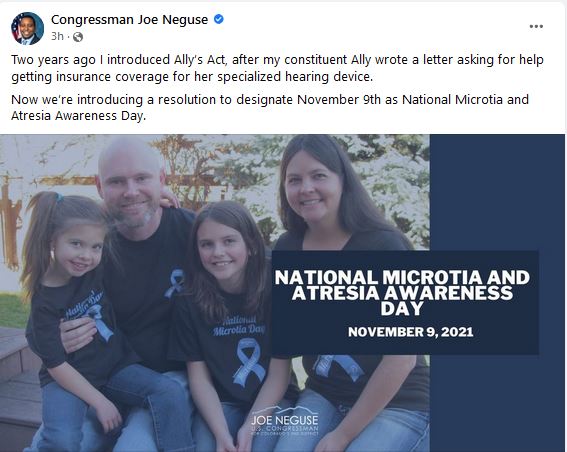
Social media post by Congressman Joe Neguse. Image of the Tumblin Family on the first National Microtia Awareness Day on November 9th, 2016.
Warren stated in the news release, “Misinformation or the lack of information about microtia and aural atresia leave far too many Americans behind. That’s why I’m glad to introduce this resolution to raise awareness of microtia and aural atresia, and advocate for the community of children and adults who are affected by these health conditions so that every individual with microtia and aural atresia can flourish.”
On National Microtia Day in the past, Melissa said parents of kids with microtia would create a presentation for students in their child’s class. It gives the kids a chance to stand in front of their class and explain their ear and hearing loss, she said.
“A lot of kids, it gives them the opportunity to embrace their differences and feel a little more confident, because they’re always asked questions about it,” she said. “A lot of these kids, they endure public stares. Classmates are often curious, and they can be mean. When kids have an opportunity and can say, ‘This is the way I was born. I was missing an ear or both ears, and that’s the reason for my crooked smile,’ it just helps neutralize it.”
While the legislation is hard for a 12-year-old to comprehend, Ally is hopeful it will lead to a greater understanding of the conditions.
“National Microtia and Atresia Awareness Day helps kids and adults like me know they are not alone,” she said. “Everyone is beautiful in their own way.”
Melissa said she chose to have the national awareness day on the ninth because the number nine is shaped like an ear.
“Our community deserves to have a day,” Melissa said. “These days are very important for their causes because it not only brings awareness to the public, but it also goes to show the support with research options and resources.”
Melissa is the founder of the nonprofit Ear Community, which started out as a support group in 2010. Through the nonprofit, Melissa said she’s helped thousands of children and adults born with microtia and atresia around the world. For more information, visit earcommunity.org.
An extra special National Microtia and Atresia Awareness Day for 2021!
On Tuesday, November 9th, 2021, the Ear Community Organization celebrated its 6th National Microtia Awareness Day, but this year was extra special! The Founders of the Ear Community Organization, Ally and Melissa Tumblin, wanted to make the awareness day more complete. The Tumblin Family originally established National Microtia Awareness Day but wanted to include the Aural Atresia community as Microtia and Atresia often go together. Thanks to Congressman Joe Neguse for already helping Ally Tumblin champion a piece of hearing health legislation called Ally’s Act, Ally and Melissa decided to reach out to Congressman Neguse again, asking if he would help them and he said yes! As a result, yesterday, Congressman Joe Neguse (D-CO) sponsored and introduced a resolution that would delegate November 9th as National Microtia and Atresia Awareness Day, alongside co-sponsors Congressman David McKinley (R-WV) and Senators Elizabeth Warren (D-MA) and Shelley Moore Capito (R-WV).
Microtia and Atresia are rare congenital anomalies that occur during the first trimester of pregnancy. Microtia occurs when the ears do not fully develop or are missing and Aural Atresia occurs when the ear canals are underdeveloped, resulting in hearing loss. Melissa Tumblin stated, “It is important to have national awareness days that raise awareness, promote public education and encourage research about unique and rare congenital anomalies like Microtia and Aural Atresia. It is also the intention of National Microtia and Atresia Awareness Day to help future generations of families have good information when leaving the hospital, equipping them with more answers than questions and their dreams for their child intact. Through our national awareness day, we hope that children and adults born with Microtia and Atresia know they are beautiful and never alone.” Many families today still leave hospitals without answers to their questions as to why their child was born with Microtia and Atresia. Mothers often blame themselves thinking they must have done something during their pregnancy that caused this even though they had perfectly healthy pregnancies. Concern about public stares and bullying of their child can often consume the minds of parents as well as wondering what options are available that can provide a better quality of life for their child.
Over the years, the Ear Community Organization has brought the Microtia and Aural Atresia community together through its awareness day! Microtia and Atresia families alongside medical professionals, therapists, teachers of the deaf and hard of hearing, researchers and hearing device companies come together to educate, embrace and celebrate the children and adults within our community! This is a day where many join together at organized events where doctors educate families through Microtia and Atresia clinics, offer grand rounds or organize ear carving workshops for plastic surgery residents. Audiologists and hearing device companies share information about hearing loss and the options for treating hearing loss. Teachers of the deaf and hard of hearing, therapists and families make the day special in the school classroom for children educating about hearing loss, differences and being unique. Some read stories such as “Wonder” while enjoying cookies and cupcakes while others organize fun events that help educate and inform about all options. This year, we had many embrace National Microtia and Atresia Awareness Day in the United States, Canada, Mexico, Columbia, Ecuador, Argentina, Chile, India, Mongolia, the UK, Russia, Poland, Malaysia and South Africa to name a few. It is always wonderful to see such pride and advocacy circulate throughout the community during our awareness day! Individuals celebrate by wearing Microtia t-shirts, making educational videos and posts, baking ear cookies and get tattoos reflecting November 9th. It is amazing to watch this each year from the Microtia and Atresia community.
The Ear Community Organization is grateful that our lawmakers are advocating alongside members of the Microtia and Atresia community!
“I’m honored to introduce this resolution in Congress, and to build on the advocacy and passion that my constituents Ally and Melissa have been growing in Colorado,” said Congressman Joe Neguse. “Ally’s bravery and ingenuity to write our office and share the idea behind Ally’s Act has begun a movement in Congress to expand access to specialized hearing devices and support individuals with microtia and aural atresia. This resolution, establishing November 9th as National Microtia and Atresia Awareness Day will continue to build awareness and help more families to leave the hospital equipped with answers for navigating these health conditions.”
Ear Community Board member, Dr. Leslie Gonsette stated “As a pediatrician and mother of a child born with Microtia and Atresia of her right ear, I embrace National Microtia and Atresia Awareness Day as a wonderful means of promoting awareness and education. Microtia & aural atresia doesn’t have to negatively impact those affected, thanks to the support and information gathered by incredible organizations, health care professionals and parent advocates. It’s important to recognize this by a nationally recognized day for Microtia and Atresia. With the right hearing devices and support, children and adults may go on to live normal, productive, and happy lives, like my thriving little girl who is now six years old.”
Ear Community Board member, Rachel Bernhard stated, “As someone who was born with Microtia and Atresia, I personally know the struggles that these individuals face daily and how important it is to have a day that creates a sense of community and awareness for this rare condition that is not well known. National Microtia and Atresia Awareness Day reminds people to have compassion and kindness for those who look different and patience for those who cannot hear well. This day also raises awareness of the problems that arise for those with hearing loss and the importance of passing legislation that supports overcoming such challenges.”
Thank you to the following co-sponsors who signed on to support this resolution and who believe in advocating for the Microtia and Atresia community:
Senator Ed Markey (D-MA), Congressman David Trone (D-MD), Congressman Emanuel Cleaver II (D-MO), Congressman Brian Fitzpatrick (R-PA), Congressman G.K Butterfield (D-NC), Congressman Paul D. Tonko (D-NY), Congressman Rodney Davis (R-IL), Congressman Seth Moulton (D-MA), Congresswoman Terri Sewell (D-AL), Congresswoman Betty McCollum (D-MN), Congressman Ed Perlmutter (D-CO), Congresswoman Judy Chu (D-CA), Congressman Don Bacon (R-NE), Congressman Ro Khanna (D-CA) and Congressman Andre Carson (D-IN).
Nearly 70 endorsers from renown medical facilities, hearing loss organizations, hearing device manufacturers, audiology and Otolaryngology academies, Microtia and Atresia repair specialists and more took the time to support this resolution knowing how much lack of information is available on Microtia and Aural Atresia. Twenty-four endorsers also provided quotes in support of National Microtia and Atresia Awareness Day.
A special thank you to the following endorsers:
Ear Community Organization
Academy of Doctors of Audiology (ADA)
Acoustic Neuroma Association (ANA)
AG Bell Association for the Deaf and Hard of Hearing (AG Bell)
American Academy of Audiology (AAA)
American Academy of Otolaryngology – Head and Neck Surgery (AAO-HNS)
American Cochlear Implant Alliance (ACIA)
American Tinnitus Association (ATA)
AudologyOnline (AO)
Broomfield City Council Member Kimberly Groom
California Academy of Audiology (CAA)
California Ear Institute (CEI)
Cedars-Sinai Medical Center
Children’s Hospital of Philadelphia (CHOP)
Children’s Hospital of The King’s Daughters
Children’s Minnesota Ear Shape Clinic
Cochlear Americas
Columbia University Medical Center
Custom DME, LLC
Dallas Ear Institute
Educational Audiology Association (EAA)
FACES – The National Craniofacial Association
Hear Aid Foundation
Hearing Health Foundation (HHF)
Hearing Industries Association (HIA)
Hearing Loss Association of America (HLAA)
HearStrong
Johns Hopkins Department of Plastic Surgery and Reconstruction
John Tracy Clinic
Let Them Hear Foundation
Lewin Ear Reconstruction
Lucille Packard Children’s Hospital Stanford
Maryland Academy of Audiology
Mass Eye and Ear
MED-EL
Medical Art Prosthetics, LLC
Microtia Congenital Deformity Institute
Nationwide Children’s Hospital
New York Eye and Ear Infirmary of Mount Sinai
Oticon Medical
Personalized Prosthetics
Proliance Surgeons
Properly Made Masks
Rainbow Babies Hospital
ReconstratA
Dr. Russell H. Griffiths Ear Reconstruction
Seattle Children’s Hospital
Seidman Laboratory
South Carolina Academy of Audiology
Stanford Children’s Health
Suh Hermsen Strap, LLC
Texas Children’s Hospital (TCH)
USC Keck School of Medicine – Cochlear Implant Center
University of Southern California School of Medicine (USC)
University of Virginia Medical Center
International endorsers:
University of West England (UK)
Proyecto Microtia (Argentina)
Audio Centro Latin America (Ecuador)
Great Ormand Street Hospital (UK)
Oticon Medical (Denmark)
Dr. Joe Dusseldorp (Australia)
University Medical Center Rotterdam (Netherlands)
For the full press release for the introduction of the Resolution for National Microtia and Atresia Awareness Day, click here.
For the full list of quotes for the Resolution for National Microtia and Atresia Awareness Day, click here.
For the Resolution for National Microtia and Atresia Awareness Day, click here.
It has always been the Ear Community’s mission to educate on all options so each one of our children and adults can be informed and make the best decisions in life that will give them the most happiness in feeling whole. Through this national awareness day, families will be able to find information and resources about Microtia and Atresia that not only can help them, but also help them feel not so alone. Along with always promoting all options, Ear Community has also championed genetic research on Microtia and Atresia. Our organization is thankful for being able to collaborate with Seidman Labs (Harvard), MIT – the Broad Institute, Vanderbilt and the Gabriella Miller Kids First Foundation and we look forward to our findings being published in 2022 on why Microtia and Aural Atresia happen. Thank you to Congressman Joe Neguse for your passion and dedication for helping constituents like the Ally Tumblin and her family! A special thank you to Ryan Shuman and Sally Tucker in Congressman Neguse’s office for working so hard to get our resolution, 1-pager, co-sponsors and press release together for our introduction! Thank you to Congressman Neguse’s office for listening to our community and for your dedication to helping advocate for the Microtia and Atresia community, including Ally Tumblin. We look forward to embracing National Microtia and Atresia Awareness Day with the world again next year!
The Ear Community Organization
www.EarCommunity.org
Here are some great memories from National Microtia and Atresia Awareness Day 2021!
Neguse, Warren, Capito, McKinley Introduce Bipartisan Microtia and Atresia Awareness Day Resolution in Honor of Constituent Ally Tumblin
November 9th, 2021
Washington, D.C.— Today, Congressman Joe Neguse (D-CO), Congressman David McKinley (R-WV) Senators Elizabeth Warren (D-MA) and Shelley Moore Capito (R-WV) introduced a resolution calling for November 9th to be recognized as National Microtia and Atresia Awareness Day. Congressman Neguse is also championing legislation, titled Ally’s Act, named after his constituent Ally Tumblin, which would require insurance companies to cover specialized hearing devices used to treat microtia and aural atresia, such as bone-anchored hearing aids (BAHAs) and osseointegrated devices (OIDs).
“I’m honored to introduce this resolution in Congress, and to build on the advocacy and passion that my constituents Ally and Melissa have been growing in Colorado,” said Congressman Joe Neguse. “Ally’s bravery and ingenuity to write our office and share the idea behind Ally’s Act has begun a movement in Congress to expand access to specialized hearing devices and support individuals with microtia and aural atresia. This resolution, establishing November 9th as National Microtia and Atresia Awareness Day will continue to build awareness and help more families to leave the hospital equipped with answers for navigating these health conditions.”
“Misinformation or the lack of information about microtia and aural atresia leave far too many Americans behind,” Senator Warren said. “That’s why I’m glad to introduce this resolution to raise awareness of microtia and aural atresia, and advocate for the community of children and adults who are affected by these health conditions so that every individual with microtia and aural atresia can flourish.”
“Supporting a resolution designating National Microtia and Atresia Awareness Day serves to benefit the children and adults with this congenital anomaly, along with their loved ones and caretakers. I am proud to co-lead Ally’s Act to bring much needed awareness to the Microtia, Aural Atresia community and hope these individuals and their families can receive the information and support that they deserve,” said McKinley.
“So many of us often take for granted the ability to hear, as well as how we use our senses to effectively communicate. Establishing November 9 as Microtia and Atresia Awareness Day will help bring needed attention to this condition, while also shining a light on the hearing-loss community. We must continue to advocate on behalf of those who are impacted by Microtia and Atresia, and we must make sure that resources continue to be available to individuals who are without hearing or hearing impaired,” Senator Capito said.
“I am proud to join my bipartisan colleagues to formally recognize National Microtia and Atresia Awareness Day,” said Rep. Fitzpatrick. “Today, we have an opportunity to not only celebrate the children and adults living with microtia and aural atresia, but also, build public awareness and support for these rare but treatable conditions.”
The resolution is also cosponsored by Representatives Brian Fitzpatrick, David Trone, Emanuel Cleaver, Paul Tonko, Rodney Davis, Seth Moulton, Terri A. Sewell, Betty McCollum, Ed Perlmutter, Judy Chu, Don Bacon, David McKinley, Ro Khanna, André Carson and GK Butterfield.
Microtia is a congenital birth anomaly that occurs when one or both ears do not fully develop or are physically missing. Microtia is often accompanied by Aural Atresia – when the ear canals are underdeveloped or absent, resulting in hearing loss. In the United States, Microtia and Aural Atresia affect 1 in every 6,000 births which is approximately 663 babies born each year. There are an estimated 54,000 individuals currently living in the United States with Microtia and Atresia.
“It is important to have national awareness days that raise awareness, encourage research and promote education about unique and rare congenital anomalies like Microtia and Aural Atresia (when a child is born with missing or underdeveloped ears and no ear canals, resulting in hearing loss),” said Melissa and Ally Tumblin, Founders of the Ear Community Organization. “We welcome National Microtia and Atresia Awareness Day – as a day to shine a light on this rare cause, but also a day to share options and resources that can improve the quality of life for the children and adults born with Microtia and Aural Atresia. This awareness day is also meant to help the children and adults born with Microtia and Atresia know they are beautiful and never alone. Along with families, medical professionals, educators, therapists and advocates we look forward to embracing National Microtia and Atresia Awareness Day every November 9th!”
“As a pediatrician and mother of a child born with Microtia and Atresia of her right ear, I embrace National Microtia and Atresia Awareness Day as a wonderful means of promoting awareness and education. Microtia and aural atresia doesn’t have to negatively impact those affected, thanks to the support and information gathered by incredible organizations, health care professionals and parent advocates,” said Leslie Gonsette, MD, Internal Medicine & Pediatrics Board Certified, Ear Community Board Member. “It’s important to recognize this by a nationally recognized day for Microtia and Atresia. With the right hearing devices and support, children and adults may go on to live normal, productive and happy lives, like my thriving little girl who is now six years old.”
“As a Board Member for Ear Community and someone who was born with Microtia and Atresia, I personally know the struggles that these individuals face daily and how important it is to have a day that creates a sense of community and awareness for this rare condition that is not well known. National Microtia and Atresia Awareness Day reminds people to have compassion and kindness for those who look different and patience for those who cannot hear well. This day also raises awareness of the problems that arise for those with hearing loss and the importance of passing legislation that supports overcoming such challenges,” said Rachel Bernhard, Ear Community Board Member.
See a full list of support quotes HERE.
Read text of the resolution HERE.
This resolution is endorsed by Ear Community; Academy of Doctors of Audiology; Acoustic Neuroma Association; AG Bell Association for the Deaf and Hard of Hearing; American Academy of Audiology; American Academy of Otolaryngology – Head and Neck Surgery; American Cochlear Implant Alliance; American Tinnitus Association; AudiologyOnline; Broomfield City Council Member Kimberly Groom; California Academy of Audiology; California Ear Institute; Cedars-Sinai Medical Center; Children’s Hospital of The King’s Daughters; Children’s Minnesota Ear Shape Clinic; Children’s Hospital of Philadelphia; Cochlear Americas; Columbia University Medical Center Departments of Audiology and Otolaryngology; Custom DME, LLC; Dallas Ear Institute Departments of Audiology and Otolaryngology; Educational Audiology Association; FACES – The National Craniofacial Association; Hear Aid Foundation; Hearing Health Foundation; Hearing Industries Association; Hearing Loss Association of America; Hear Strong; Johns Hopkins Department of Plastic Surgery and Reconstruction; John Tracy Center; Let Them Hear Foundation; Lewin Ear Reconstruction; Lucile Packard Children’s Hospital Stanford; Maryland Academy of Audiology; Mass Eye and Ear; MED-EL; Medical Art Prosthetics, LLC; Microtia Congenital Deformity Institute; Nationwide Children’s Hospital Ohio; New York Eye and Ear Infirmary of Mount Sinai; Oticon Medical; Personalized Prosthetics; Proliance Surgeons; Properly Made Masks; Rainbow Babies Hospital Ohio; ReconstratA; Dr. Russell H. Griffiths Ear Reconstruction; Seattle Children’s Hospital; Seidman Laboratory; University of Southern California School of Medicine – Otolaryngology; South Carolina Academy of Audiology; SpeechPathology.com; Stanford Children’s Health; Suh Hermsen Strap, LLC; Texas Children’s Hospital; USC Keck School of Medicine/Cochlear Implant Center; and the University of Virginia Medical Center.
Cochlear announces FDA approval and FDA clearance of first-of-its-kind Remote Care capabilities for Nucleus and Baha Systems
- Remote Assist allows remote programming, processor setting adjustments and counselling via a live video session
- Upcoming availability for Cochlear Nucleus 7, Kanso 2 and Baha 6 Max Sound Processors
- Part of Cochlear’s investment in Connected Care technology, enabling consistent, personalized care across care settings to optimize patient outcomes
Lone Tree, Colo. (October 12, 2021) — Cochlear Limited (ASX: COH), the global leader in implantable hearing solutions, obtained U.S. Food and Drug Administration (FDA) approval and clearance in the last month for its Cochlear™ Remote Assist solution in the Nucleus® and Baha® Systems. The FDA approval for the cochlear implant solution and FDA clearance for the Baha solution are the first step in commercializing the product offering, anticipated spring 2022, and complement Cochlear’s existing Remote Care offerings.
Quality care, anywhere
Remote Assist delivers the ability for clinicians to engage with their patients through a live video, audio or chat session in the fitting software and connect to the sound processor via the patient’s Nucleus or Baha Smart App.* Once connected to the patient, the hearing health provider can make programming adjustments, enable processor settings and provide counselling via a live video session. Any changes are saved remotely to the patient’s sound processor.
Cochlear’s Remote Care solutions offer hearing implant patients the convenience of quality hearing care without the need to visit a clinic. With new flexibility to manage patient progress remotely, hearing health providers have time to offer care to more patients, including those who may be limited by location, health, mobility or work commitments.
For cochlear implant patients with Nucleus 7 and Kanso® 2 Sound Processors, Remote Care consists of two options:
- Remote Check, FDA approved in April 2020, which allows patients to complete a convenient, at-home hearing review without visiting the clinic.** Results are then sent remotely to their clinician for review. Clinicians can analyze information gathered during the Remote Check to determine if and how further follow up is needed at that time.
- Remote Assist, which is available to clinicians in Custom Sound® Pro and connects to the patient’s sound processor via the Nucleus Smart App to make live global changes to the patient’s programs via Master Volume, Bass & Treble (MVBT) adjustments and enable other processor features.
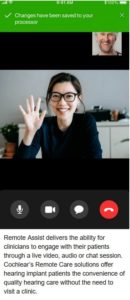
For bone conduction patients with Baha 6 Max Sound Processors, Remote Assist is available to clinicians in Baha Fitting Software 6 with connection to the sound processor via the Baha Smart App. Remote Assist for Baha 6 Max allows clinicians to fully program and adjust the sound processor for the patient, including performing BC Direct (in situ audiometry) and Feedback Analyzer functions.“Through Cochlear’s Remote Check and Remote Assist, our innovative and secure Remote Care solutions further enhance clinical practice by bringing more options for monitoring patient performance and optimizing hearing outcomes remotely – ultimately providing care when and where it’s needed,” said Tony Manna, President, Cochlear Americas. “Our Remote Care solutions have been carefully designed and tested
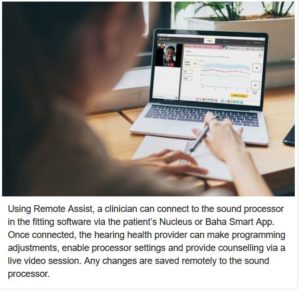 to meet rigorous quality and security standards, giving our hearing implant recipients and their hearing care professionals the confidence to receive and deliver quality care outside of a medical office.”
to meet rigorous quality and security standards, giving our hearing implant recipients and their hearing care professionals the confidence to receive and deliver quality care outside of a medical office.”Inspired by connecting people with care
The Remote Care offerings are part of Cochlear’s Connected Care portfolio, transforming how people connect with hearing care across different care settings – from the surgical suite to the clinic, and into a patient’s everyday life. Connected Care offers new tools that give hearing care professionals the flexibility to customize patient care, increase clinic efficiency and maximize their time delivering quality patient care. For patients, Connected Care provides convenient ways to access quality hearing care when and where they need it throughout their hearing journey.
“We understand that the expectations and preferences of those using a Cochlear hearing implant change over time. That’s why we use our innovative technology to develop new digital tools that support an evolving care model to meet changing needs,” said Mia Visconti, Director, Connected Care Innovation Product & Services, Cochlear Americas. “With Cochlear’s Remote Care solutions, we can securely provide quality hearing care without requiring a recipient to visit a clinic by leveraging the advanced connectivity features of our Nucleus and Baha Sound Processors and our leading app technology.”
Cochlear will immediately begin a controlled market release of Remote Assist in the U.S. by partnering with hearing healthcare providers and hospitals to provide professionals with more options for monitoring patient performance and optimizing hearing outcomes – providing patient care when and where it’s needed.
Cochlear anticipates Remote Assist approval in Canada to be obtained in late 2021 for the Nucleus System and early 2022 for the Baha System.
For further details about Cochlear’s Connected Care portfolio, visit www.cochlear.us/ConnectedCare.
About Cochlear Limited (ASX: COH)
Cochlear is the global leader in implantable hearing solutions. The company has a global workforce of more than 4,000 people and invests more than AUD$190 million each year in research and development. Products include cochlear implants, bone conduction implants and acoustic implants, which healthcare professionals use to treat a range of moderate to profound types of hearing loss.
Since 1981, Cochlear has provided more than 650,000 implantable devices, helping people of all ages, in more than 180 countries, to hear.
###
* For compatibility information, visit www.Cochlear.com/compatibility.
** Remote Check is intended for ages 6 and older. The Remote Check feature is only visible and accessible if the feature is enabled by a clinician. Clinicians should consider the suitability of the feature before enabling Remote Check. Remote Check does not replace clinical care and does not involve remote programming of the sound processor. Remote Check is not compatible with Baha 6 Max Sound Processors.
Please seek advice from your health professional about treatments for hearing loss. Outcomes may vary, and your health professional will advise you about the factors which could affect your outcome. Always read the instructions for use. Not all products are available in all countries. Please contact your local Cochlear representative for product information.
© Cochlear Limited 2021. All rights reserved.
Introducing the First Style in the Ponto 5 Family
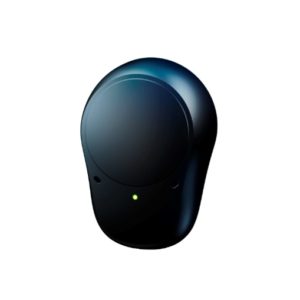 Copenhagen, Denmark – September 15, 2021
Copenhagen, Denmark – September 15, 2021
More sound to the brain
Oticon Medical is excited to announce the launch of Ponto 5 Mini – the first style in the new Ponto 5 family. With its revolutionary approach to feedback, this new sound processor takes the open sound experience, first introduced with the groundbreaking OpenSound NavigatorTM, to a new level.
New research shows that the brain needs access to all sounds from the full soundscape to help it make sense of what it hears.1,2 OpenSound Navigator and OpenSound OptimizerTM are just two of the BrainHearingTM technologies used in Ponto 5 Mini to give users access to more sound than ever before. This has been confirmed in a study that show that the open sound technologies of Ponto 5 Mini improves speech understanding by 20% and significantly reduces the listening effort needed to make sense of sound.*,3
Up until now, traditional feedback systems have overcome annoying whistling sounds by reducing gain and removing the dynamics of sound. The new OpenSound Optimizer in Ponto 5 Mini, analyses amplified sound 56,000 times per second to detect and actually prevent audible feedback before it occurs. This means audiologists no longer need to compromise on sound dynamics to reduce feedback and can fit users with Ponto 5 Mini with up to 6dB more stable gain.4
Jes Olsen, President Oticon Medical, has followed the development of the OpenSound Optimizer closely and comments, “It has taken years for us to develop a technology that can prevent feedback without decreasing gain and reducing the dynamics of sound. With the OpenSound Optimizer technology we now have the solution, and the result is to the benefit of all users.”
In addition to its advanced sound processing technology, all aspects of Ponto 5 Mini have been designed to make life easier for users – including clinical appointments. We now introduce the easy-to-use Oticon RemoteCare platform, where follow-up appointments and adjustments can be carried out remotely.
As you would expect from a sound processor as advanced as the Ponto 5 Mini, it is also designed for the digital world with accessories, apps, and built-in technology to help users stay connected.
With the Ponto 5 Mini, Oticon Medical continues to offer the world’s smallest and most discreet bone anchored sound processor available. Despite its tiny size, Ponto 5 Mini delivers the state-of-the-art reliability, durability and product quality that have become synonymous with Ponto.
Because sound matters
Oticon Medical is a global company in implantable hearing solutions, dedicated to bringing the power of sound to people at every stage of life. As part of the Demant group, a global leader in hearing healthcare with more than 16,500 people in over 30 countries and users benefitting from our products and solutions in more than 130 countries, we have access to one of the world’s strongest research and development teams, the latest technological advances and insights into hearing care.
Our competencies span more than a century of innovations in sound processing and decades of pioneering experience in hearing implant technology. We work collaboratively with patients, physicians and hearing care professionals to ensure that every solution we create is designed with users’ needs in mind. We have a strong passion to provide innovative solutions and support that enhance quality of life and help people live full lives – now and in the future.
Because we know how much sound matters
*Increased speech understanding with OpenSound Navigator ON measured as a percentage relative to the baseline with OpenSound Navigator OFF.
1 O’Sullivan, et al (2019). Hierarchical Encoding of Attended Auditory Objects in Multi-talker Speech Perception. Neuron, 104(6), 1195-1209.
2 Puvvada, K. C. et al. (2017). Cortical representations of speech in a multitalker auditory scene. Journal of Neuroscience, 37(38), 9189-9196.
3 Manuscript in preparation, Data on File – Clinical study BC102
4 Data on file at Oticon Medical
Link to press release through AudiologyOnline.
Ear Community proudly awards its 17th college scholarship
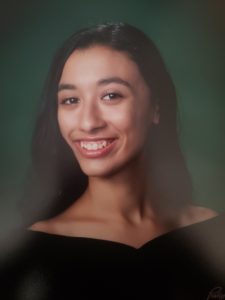 Meet Krystyl Wooten from San Jose, California! Krystyl was born with Microtia and Aural Atresia of her right ear. She is excited to embark on her college career through William Jessup University with an anticipation graduation date in 2025! While growing up, Krystyl says she has experienced some difficult times like not being able to hear people correctly or being bullied because of having Microtia, but she has found joys in having a little ear such as being able to fall asleep with her Microtia ear up to the world giving her some peace and silence while she sleeps having the opportunity to cancel out noises.
Meet Krystyl Wooten from San Jose, California! Krystyl was born with Microtia and Aural Atresia of her right ear. She is excited to embark on her college career through William Jessup University with an anticipation graduation date in 2025! While growing up, Krystyl says she has experienced some difficult times like not being able to hear people correctly or being bullied because of having Microtia, but she has found joys in having a little ear such as being able to fall asleep with her Microtia ear up to the world giving her some peace and silence while she sleeps having the opportunity to cancel out noises.
Krystyl says her mom, Elia, is her rock! On the tough days when Krystyl is struggling with self confidence, she says her mom is always there for her, still encouraging her to show the world who she is. You see, Kyrstyl’s mom, Elia, was also born with Microtia and Atresia. It is nice to know someone in the same situation – that you can talk to who truly understands what you are going through. On any other given day, Krystyl is always looking for an adventure and is excited to try new things. Some of Krystyl’s joys are praising Jesus and praising him in music and song. Krystyl sings all day, everyday from the moment she wakes up until falling asleep. She also enjoys playing piano every chance she gets! Krystyl enjoys being outgoing and caring and always enjoys finding happiness and smiles in everyone!
Knowing that Krystyl has a God-given talent for music, she was accepted to William Jessup University’s music program with an emphasis in worship. Krystyl actively sings and plays for her church when she is not in class. When she thinks about her future, she is interested in possibly becoming a missionary or a planner for a church music department – maybe even teaching and writing music and helping with mixes with recording studios.
A special thank you to Brent Newcomb, President of Ecofin, and the Board of Directors at Ecofin Investments, for making this scholarship possible for Ear Community to shine on some of it’s beautiful community members like Krystyl.
We are so proud of Krystyl! We look forward to the beautiful musical talent that Krystyl will continue to show our world! Most of all, congratulations to Krystyl for being strong and powering on! It is strength like this that often helps many others who are not strong enough. We believe God has big plans for you, Krystyl! Keep powering on and making a difference in our world and good luck in college! You’ll do amazing things!
– Ear Community
www.EarCommunity.org
Ear Community and Cochlear Americas help Georgia man receive the gift of hearing
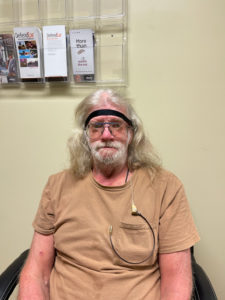 Meet Willard! Willard was born with bilateral Microtia and Atresia and lives in Savannah, Georgia. Willard is 63 years old and has struggled all of his life with hearing loss. After visiting with an Otolaryngologist in 2020, he was informed about a bone anchored hearing device and how this hearing device could be surgically implanted to help him hear. Since Willard was struggling to hear, he was happy to learn about this option. Unfortunately, while Willard is not ready to be surgically implanted at this time, he still wanted to hear better with the hearing device being worn on his head. Since Willard cannot benefit from a traditional hearing aid, he asked his hearing clinic for help. Unfortunately, Willard’s insurance provider denied coverage for a bone anchored hearing device on a soft band head band. Willard’s current audiologist, Dr. Casey Allen, also tried to apply through Georgia’s state Medicaid program to help Willard as he is on a fixed income, but sadly Georgia’s Medicaid program also denied his claim to hear better.
Meet Willard! Willard was born with bilateral Microtia and Atresia and lives in Savannah, Georgia. Willard is 63 years old and has struggled all of his life with hearing loss. After visiting with an Otolaryngologist in 2020, he was informed about a bone anchored hearing device and how this hearing device could be surgically implanted to help him hear. Since Willard was struggling to hear, he was happy to learn about this option. Unfortunately, while Willard is not ready to be surgically implanted at this time, he still wanted to hear better with the hearing device being worn on his head. Since Willard cannot benefit from a traditional hearing aid, he asked his hearing clinic for help. Unfortunately, Willard’s insurance provider denied coverage for a bone anchored hearing device on a soft band head band. Willard’s current audiologist, Dr. Casey Allen, also tried to apply through Georgia’s state Medicaid program to help Willard as he is on a fixed income, but sadly Georgia’s Medicaid program also denied his claim to hear better.
Thankfully, Dr. Allen had heard about the Ear Community Organization! Dr. Allen went above and beyond helping Willard fill out his application (Willard has poor vision) to apply to our organization for help obtaining a bone anchored hearing aid so he could hear. Dr. Allen explained to Willard that Cochlear Americas has a hearing device that could help him hear better called the Baha 6 Max! When Ear Community’s board of directors received Willard’s application for a hearing device, everyone was happy to help Willard hear and voted yes on his application to help this gentleman obtain a Baha!
During the month of August, Willard was fitted with his newly donated Baha 6 Max from Cochlear Americas! A special thank you to Dr. Casey Allen for donating her time and services to help fit and program Willard’s new Baha 6 Max and for helping him with his application. Thank you to Keesha Pfeiffer of Cochlear Americas for helping donate Willard’s Baha 6 Max to our Ear Community Organization so we could help someone in need like Willard! Ear Community is so proud to collaborate with Cochlear Americas when coming together to help individuals who are in need within the Microtia and Atresia community. “Cochlear is the global leader in implantable hearing solutions. It has a dedicated global team of more than 2,500 people who deliver the gift of sound to those with hearing loss in over 100 countries. Its vision is to connect people, young and old, to a world of sound by offering life enhancing hearing solutions. In 2013, Cochlear celebrated 100,000 Baha System users – all with unique stories of how being able to hear again has impacted their lives. The Cochlear promise of “Hear Now. And Always” embodies the company’s commitment to providing its recipients with the best possible hearing performance today and for the rest of their lives.”
Everyone at Ear Community is happy that Willard will be able to hear so much better now!
Ear Community
www.EarCommunity.org
Ear Community proudly awards its 16th college scholarship
 Meet Owen Poling, a Chinese-American from Lancaster, Ohio! Owen graduated from Bloom-Carroll High School this past May and is looking forward to attending Albion College this fall in Michigan. Owen was born with Microtia and Atresia of his right ear. In Owen’s application letter, he spoke about growing up over the years and enduring stares from the public. He expressed how much the stares hurt him and how angry this made him – realizing that people thought that just by staring at his ear would do no harm to him.
Meet Owen Poling, a Chinese-American from Lancaster, Ohio! Owen graduated from Bloom-Carroll High School this past May and is looking forward to attending Albion College this fall in Michigan. Owen was born with Microtia and Atresia of his right ear. In Owen’s application letter, he spoke about growing up over the years and enduring stares from the public. He expressed how much the stares hurt him and how angry this made him – realizing that people thought that just by staring at his ear would do no harm to him.
One night while watching TV with his parents, the topic of ear surgery came up. Even though Owen was old enough for ear reconstructive surgery, he felt that something was holding him back from making this decision. Owen’s parents reminded him how much he is loved! Owen also realized that this is who he is and that by changing how he looks would not help others or himself. This was the night that Owen decided he was not changing how he looks! Embracing his smaller ear, he decided that he would keep his ear just the way it was in hopes of helping others just like him know that it is okay to be unique.
Over the years, Owen has come to believe that thanks to the many public stares and questions asked, they have helped him become a stronger person. Owen plans on majoring in Biology and minoring in Psychology at Albion College, earning his bachelors in science degree. He plans to continue on to graduate school, becoming a genetic counselor. Owen realizes that thanks to experiencing life with his congenital little ear, this has created a fascination in him for genetics and biotechnology, such as gene editing.
Owen is thankful for the decision he made that night with his parents, while watching TV. He hopes to help others just like him know that you can still be strong and achieve your goals in life while being unique. Owen says he will continue to inhale faith and exhale fear as he continues on his journey.
A special thank you to Brent Newcomb, President of Ecofin, and the Board of Directors at Ecofin Investments, for making this scholarship possible for Ear Community to shine on some of it’s beautiful community members like Owen.
We are so proud of Owen! We look forward to the positive change that Owen will bring for so many others with his future career in genetics! Most of all, congratulations to Owen for being accepting and loving of himself and embracing his unique little ear. You have a bright future ahead of you, Owen!
Congratulations, Owen! Do great things!
The Ear Community Organization
https://earcommunity.org/events/great-memories/
Colorado boy receives gift of hearing during Better Hearing and Speech Month
Meet Leonardo, a sweet 4-year-old that lives in Denver, Colorado. Leo was born with Microtia and Aural Atresia of his left ear. After Leo didn’t pass his newborn hearing screening, it was suggested to his mother, Yocelin, that he would hear better with a bone anchored hearing device. When he was a baby, Yocelin tried a loaner bone anchored hearing aid on him but decided to wait a bit longer until he was older, as she struggled to keep the hearing device on Leo at first. Now that Leo has started preschool, Leo trialed a loaner bone anchored hearing device again and this time he loved it! Yocelin noticed Leo choosing to wear this loaner hearing device every day and that he really seemed to understand better when he wears it! Yocelin said she even began receiving compliments from Leo’s teachers on how good he was doing in preschool!
Now realizing how much Leo was benefiting from wearing a hearing device, Yocelin was ready to apply for a BAHA through her insurance provider. Even though the state of Colorado has hearing device insurance coverage in place, unfortunately, when Yocelin went to apply for a BAHA for Leo with their audiologist, her insurance provider denied their claim for a BAHA – stating that they do not cover hearing aids. This was with Leo even being a patient at the Children’s Hospital here in Colorado! Following an appeal with Yocelin’s insurance provider and speaking with her employer about their coverage plan, Yocelin was still denied being told that they do not cover hearing aids, period.
After finding out how much a bone anchored hearing device would cost out of pocket for Leo, Yocelin was heart was broken. “As much as I want him to have this device, I cannot afford it and it breaks my heart that I can’t provide this for him,” said Yoselin. “I have other financial responsibilities that I need to take care of, a mortgage payment, car insurance, utility bills, groceries, etc…” Thankfully, Yocelin found our Ear Community Organization and applied for a bone anchored hearing device for Leo! Ear Community was able to help Yocelin obtain a Ponto 4 bone anchored hearing aid from Oticon Medical through our organization along with the help of Leo’s audiologists, Dr. Lauren Charles and Dr. Kristen Adkisson, donating their time and services to fit and program Leo with his newly donated bone anchored hearing aid!
Thank you to Yocelin for advocating for Leo and making sure that he can hear. Yocelin says that Leo now “reminds her to put on his “speaker” and wants it placed on his head right away before leaving the house to head off to school.” Yocelin is grateful and filled with joy because she knows Leo is hearing so much better now and loves that he is making new friends at school.
A very special thank you to Alan Raffauf, Vice President of Marketing and Operations of Oticon Medical US, and to Beverly Ostrowski, Director of Customer Service for Oticon Medical US, for donating a Ponto 4 to the Ear Community Organization so Leo could receive the gift of hearing and thrive. Oticon Medical is a well-respected international hearing device manufacturer that is a part of the “William Demant Group [which has] 100-plus years of experience in audiology and sound processing and established manufacturing and logistics infrastructure. Ear Community would also like to thank our donors and members of the community who want to help our organization continue our work – none of this would be possible without your support! We are so happy to have been a part of helping Allan hear better!
Everyone at Ear Community is excited to see Leo thrive in school while hearing his best now with his new Ponto! It’s stories like this that back why we needed to have legislation introduced like Ally’s Act, H.R. 477 and S. 41. We hope that Ally’s Act passes so that no child or adult continues to be denied the right to hear when trying to gain access to hearing devices like bone anchored hearing aids and cochlear implants. Please support Ally’s Act by taking 2 minutes to write to your local lawmakers at the following link by asking them to cosponsor this bill: https://www.votervoice.net/EveryLife/1/campaigns/80211/respond Please also consider scheduling a Zoom meeting with your lawmakers too to discuss this bill and help them understand why this bill matters to you!
Thank you from all of us at Ear Community!
www.EarCommunity.org
